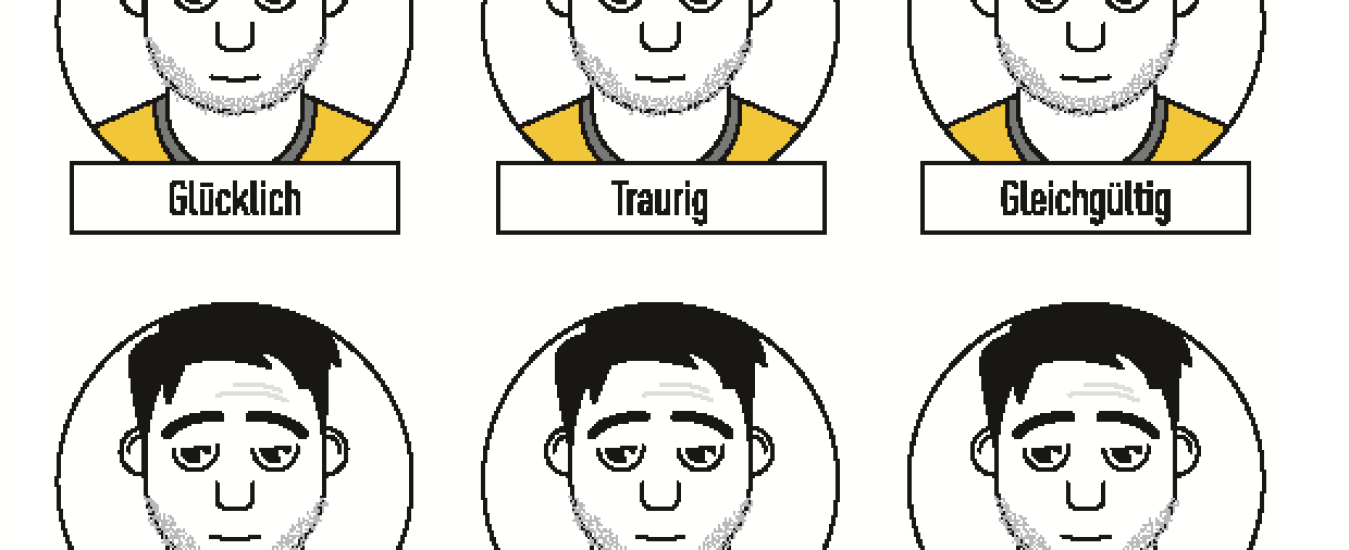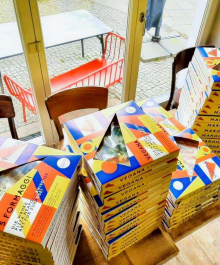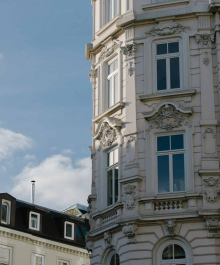

Adam Fletcher On “How To Be German: Part Two”: This Time, Even More German
By Philip Eggersgluess . August 19, 2016
Adam Fletcher isn’t German. But his time in Leipzig and Berlin–two cheap cities that allow mad exploration into this loved, but very–erm–“different” culture, perhaps makes him an expert in How To Be German. Which is why he wrote not one, but two books on the topic.
And now, with the introduction of How To Be German PART TWO, we sat down with Adam to discuss just why he wanted to revisit the verb “To German”, why a good story should never get in the way of the truth, and how he’s faring as a permanent-writer-with-a-hangover.
BLY: Adam, How To Be German: Part Two – how does this follow on from the first?
I think of the first as the Anfänger edition, with this as the Profi. Accordingly there’s a lot of neologisms in the book where I had to make up words for things I was seeing but that there was no name for, things like – Kassekegeln, Springerschmerz, Third Reich Fever, Ostalgie-Kapitalismus-Konflict, Wahlplakat Rogue’s Gallery, and Nationalmannschaftspatriotismusmkrankheit.
There’s something called the Baader-Meinhof phenomenon, which is when you learn about something – a new word, band, brand, etc. and you suddenly start seeing it everywhere. That’s what I aim for with my books. To try and describe those little automatic and unconscious everyday moments of life here in such a way that they become special and noteworthy again.
BLY: Who should read your book, and why? Germans to get back on track with how they really are, or for non-Germans to understand this alien species a little more?
“Should” is a perhaps too strong a verb for my literary output; could, or it-would-be-very-nice-if-you-would-my-rent-doesn’t-pay-itself-no-really-I’ve-tested-this-thoroughly-enough-to-know might be more fitting.
Readers of my books are typically foreigners in a relationship with a native who gifts them one with a “this will help you understand me” type primer. As for the Germans reading them, they tend to be Weltenbummler types who have gotten far enough away from their own culture to no longer understand it/find it sacred.
BLY: Why is it important for the world to be more German? Would the world benefit from being more German?
It mostly definitely would, and that’s not just my opinion. Germans are the most loved tourists, and it’s the most positively viewed nation. The New York Times recently said, “There’s a new can-do nation. It’s called Germany.” The Economist went even further with, “If a country can ever be said to be good, Germany today can.”
I think Germany’s commitment to education, self-development, practicality, fiscal responsibility and everyday rationality would be a welcome addition to just about any land. But I may be biased/deluded here.
BLY: If you had to pick one step that makes a person the most German, what would it be?
Klugscheißen. Growing up, I was always told never to let the truth get in the way of a good story. Here it’s the opposite – never let a good story get in the way of The Truth™.
BLY: Alternately, if someone wanted to be less German in one easy step, what should they do?
They should not care in any way what makes them German or what anyone thinks about Germany. This is certainly the biggest difference between England and Germany. We’re so secure in our identity, we don’t care what anyone thinks about us. I’m really holding back the urge to talk about Brexit now since I don’t want to be depressed for the rest of the day.
BLY: Your first book on how to be German was a bestseller. Did you expect such a success?
I could have just written a mean book, something like the Xenophobe’s guides, and I’m sure it would have sold okay. But I’m of the opinion that destruction, while sexy, is really the idiot younger brother of construction. I wanted to write something constructive, something nice and respectful, of the almost overwhelmingly lovely life and friends I have here. I hoped to create something that both foreigners and locals could laugh at together. I hope I managed it, and that’s why it’s still selling. I’m not sure. It’s not for me to say.
BLY: What gave you the idea to write it in the first place?
There are many “47 reasons you love Germany, 12 will make you brüllen!” type listicles that make the rounds each year. I would read them from time to time but never found one that spoke to my experiences in those first heady, intoxicating years in Leipzig. I always planned to have my own stab at it.
It turned out to be on a Sunday morning when I was hungover, after I’d left Leipzig and spent a few equally stimulating years in Berlin. I didn’t expect much when I, yet a million people read it that first month. I was contacted by UIlstein and C.H.Beck about turning it into books. Six books later. I’m still mostly writing in bed and with a hangover. Only now it’s my job and so sort of encouraged, even. It has been a completely unexpected little adventure.
BLY: Has ‘being German’ changed at all since you wrote your first book?
It definitely has. There was what felt to me like a relentless tsunami of praise for Germany from 2006 (beginning with the World Cup) until about 2012. But I’ve worked in the media long enough to know positivity can’t last and that the narrative has to change or everyone loses interest in the story. It’s changing now, I think. If you label yourself the “wir schaffen das” nation, you’re really just goading people to point out all the various things you’re failing to schaffen. I think there could be a rocky few years ahead.
It’s actually because of those rocks that I got interested in the topic again. For a long time, I said there would be no How to be German 2. But then there was – the BER airport, Elbphilharmonie Hamburg, the Volkswagen emissions scandal, the rise of Pegida and the AfD, 1.2 million new citizens. Germanness is changing rapidly, and a lot of people seem angry about that and nostalgic for some (mostly idealised) earlier form of it. It sort of seemed like it might be time to do a new guide, one that went a little deeper this time.
BLY: Now you’ve made your career as an author, what would you say were the biggest factors in making your success, and could it have happened anywhere else than in Berlin?
This is a big topic. I have a book that touches on how the world of work has changed and what you can do to benefit. It’s Wir können auch anders (also from C.H.Beck, my publisher of the HTBG series). In English, it’s called The Freedom Figure.
Basically, it could have happened elsewhere, but that elsewhere would have been somewhere cheaper. I’m only interested in cheap cities, because cheap cities allow for experimentation. I will leave Berlin when it gets too expensive. Most of your success in this industry is entirely out of your control. But you can decide how long you stay in the game of writing. Every hour that you don’t have to spend waiting tables, or pouring beer just to pay your rent, is an hour you can invest writing or marketing what you have written. The more things you have to offer the world, the more places you go and offer it, the more likely someone is going to say – “yeah, well, I wasn’t really looking for a you. But I guess, since you are here, and keen, fine, have a chance…”
BLY: As someone who doesn’t like beer, how do you think you are qualified to write about the Germans?
I like beer, it just doesn’t seem to like me, which is really unfair considering how much time I’ve invested in our relationship over the past decade. As for my qualifications to write about Germany, well, that’s a question I get a lot. If the Internet is, “pics or it didn’t happen,” Germany is, “certificate or it didn’t happen.”
My only qualification is that I’ve already done it, four books worth of it, in fact. Of course, everyone is welcome to say I haven’t done it very well. But that’s another thing out of my control, so I try not to think about it too much. There’s plenty of other things to worry about instead, like the greatly diminished value of my passport.
Watch out for Adam’s next book, How To Be German Part 2, and our editor Andrew’s upcoming review: How Well Does Adam Really Know How To Be German, Part 2.
Written in co-operation with C.H. Beck.







2 thoughts on “Adam Fletcher On “How To Be German: Part Two”: This Time, Even More German”
Comments are closed.